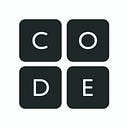These teens started learning on Code.org and just sold their first startup
How do two entrepreneurs sell their first startup at ages 17 and 18? All it takes is a vision… and a bit of an early start.
Seattle-based tech news outlet Geekwire first reported the story in May that Seattle teens Sage Khanuja, 17, and Nikolas Ioannou, 18, sold their telemedicine startup, Spira, to a New York-based healthcare company.
Best of all, both say they got their start learning computer science on Code.org and other online resources.
Spira was initially developed to track respiratory health using a phone’s microphone to conduct a cough and auscultation test, and soon became a multi-faceted tool to meet patients’ healthcare needs on their mobile devices.
We asked Sage and Nikolas what excites them about computer science, how they got their start, and what advice they have for young computer scientists with big ideas.
Code.org: How long have you been learning computer science? Was it taught in your school?
Sage Khanuja (SK): I’ve been learning CS since I was probably in 3rd or 4th grade. The basics, like Scratch, were taught in my school, but I have mainly learned from online resources like YouTube and Code.org.
Nikolas Ioannou (NI): I’ve always been into technology, but I only recognized its potential when I learned to program in elementary school. I’d first heard of it in a class but relied on online resources to improve. Code.org provided a solid foundation for the skills I continue to develop today.
What do you like most about computer science?
NI: What I love most about programming is its ability to make an impact. With the click of a button, I can publish my products for anyone to benefit from across the globe. Seeing my work have a positive impact on the lives of others has been incredibly motivating.
SK: I started learning about CS because I had a bunch of ideas that I wanted to build. I really like how having a solid CS background enables you to bring those ideas to life. In addition, it is such a rewarding feeling to have products you built be used by others.
How did your CS background prepare you for creating a health-tech startup?
SK: In any technology startup, being able to code as a founder at least in the beginning is a huge advantage. This allows you to build the first version of the product incredibly quickly and iteratively. In health-tech more specifically, having a CS background was most helpful in managing large amounts of data and also approaching software security compliance from first principles since I could be hands-on.
NI: These days, technology is a vital part of every company. In our case, having a programming background helped us build our MVP and ship new features with speed. When a customer came to us with a feature request, we could get back to them the next day with an update.
What excites you about the intersection of health and CS?
NI: Since COVID-19, we’ve seen the emergence of digital health. But the truth is that health is still decades behind other fields when it comes to technology. I’m excited to see companies like Galileo revolutionize health by using technology to improve the quality and affordability of care for all.
SK: Healthcare is one of the biggest industries in the world. Yet most of the technology such as electronic health records (EHRs), where patient data is stored, are antiquated. Bringing the health tech stack in the 21st century will enable doctors to operate more efficiently and ultimately deliver better care. In addition, the adoption of patient-centric technology such as telehealth will make healthcare more accessible for everyone.
Do you have any advice for kids just starting to learn CS?
SK: My advice would be to pick a simple project which you get excited about — then start working backward from that.
When I was in elementary school the game Flappy Bird was popular and I was really bad at it. So I cloned the existing Flappy Bird code and modified it to make it easier so I could show my friends I was beating them.
These simple projects are fun and get you motivated to continue on your learning journey!
NI: The best thing you can do is get your hands dirty — learning by doing. Think of an idea that excites you. It doesn’t have to be revolutionary, and in fact, one of my first published projects was an app called PickAFinger that brings Nose Goes to your iPhone. It’s super basic, but I learned a lot about mobile development, and hundreds of thousands across the globe use it today.
-Meghan Gannon, Code.org
Join us in empowering students like Nikolas and Sage by making the most generous gift you can to Code.org. Your support makes Code.org’s curriculum and learning tools free and accessible to all students around the world. For questions or assistance, please contact the Office of Development at giving@code.org or (206) 593–5521.
